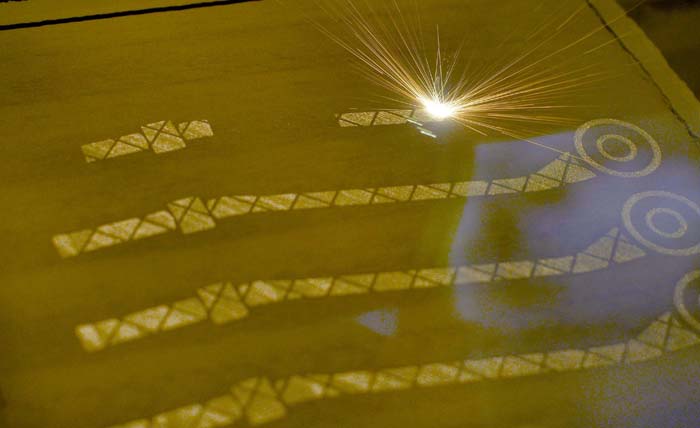Ningbo Jiehuang Electronic Technology Co., Ltd., a leading metal parts supplier in China, has announced the integration of a rule-based design for manufacturability (DFM) analysis into its direct metal laser sintering (DMLS) process. This integration is expected to significantly enhance the manufacturing efficiency and quality of metal parts produced through DMLS.

Direct metal laser sintering is a 3D printing process that uses a high-energy laser to selectively melt and fuse powdered metal into a solid structure. This technology has gained significant popularity in recent years due to its ability to produce complex, customized metal parts in a net shape process with minimal waste material. DMLS has numerous advantages over traditional metal fabrication methods such as forging, casting, and CNC machining, making it an attractive option for industries ranging from aerospace to healthcare.
However, like any manufacturing process, DMLS requires careful design consideration to ensure optimal results. Design for manufacturability (DFM) is the process of designing products for ease of manufacturing with a focus on reducing costs and increasing efficiency. A rule-based DFM analysis involves using pre-defined rules and constraints to systematically evaluate and optimize the design of a product for manufacturability.
By integrating a rule-based DFM analysis into their DMLS process, Ningbo Jiehuang Electronic Technology Co., Ltd. is taking a proactive approach towards optimizing the manufacturing process of metal parts. This integration will enable their team to identify and address potential manufacturing challenges early in the design phase, helping to reduce lead times and costs for their customers.
The implementation of a rule-based DFM analysis system will allow for the optimization of a wide range of design factors, such as part tolerance, support structures, and material selection. This will result in improved part quality, reduced scrap rates, and faster production times. Furthermore, the DFM analysis system will provide customers with valuable feedback on design changes that could enhance the performance or manufacturability of their parts.
Ningbo Jiehuang Electronic Technology Co., Ltd. has a team of experienced professionals with expertise in custom metal parts prototyping and production. They offer a range of metal manufacturing solutions, including casting, forging, stamping, CNC machining, powder metallurgy, and metal injection molding (MIM). The integration of a rule-based DFM analysis system will augment their existing capabilities, further enhancing their ability to deliver high-quality, cost-effective metal parts to their customers.
Spokespersons from Ningbo Jiehuang Electronic Technology Co., Ltd. emphasized the benefits of the integration, saying, “Our company has always been committed to continuously improving our manufacturing processes through investment in cutting-edge technologies. The implementation of a rule-based DFM analysis system in our DMLS process is yet another example of our commitment to innovation and providing the best solutions to our customers. With this technology, we can provide our customers with an even better experience when it comes to DMLS.”
The integration of a rule-based DFM analysis system in direct metal laser sintering is expected to have a significant impact on the metal parts manufacturing industry, enabling faster and more efficient production of complex metal parts. As the demand for high-quality, customized metal parts continues to grow, it is likely that this technology will become increasingly essential for metal parts manufacturers who wish to remain competitive in the market.